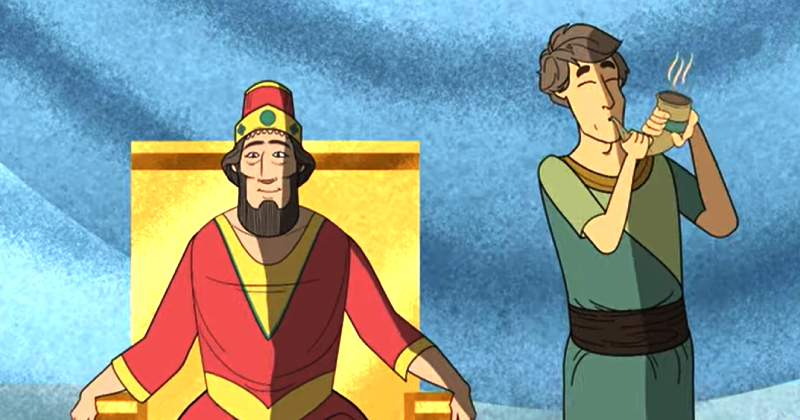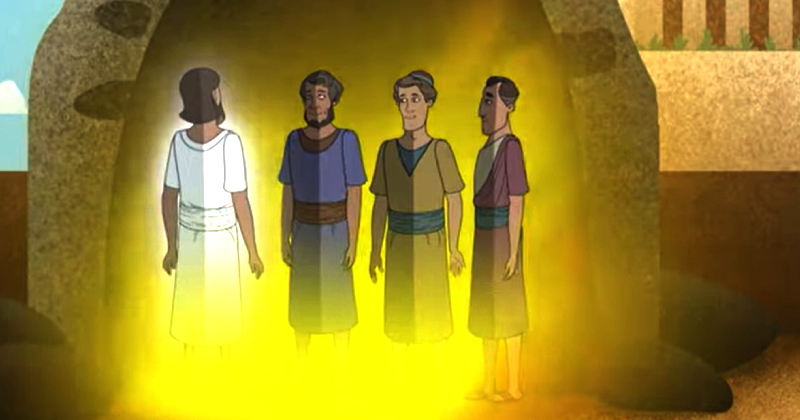Once upon a time, in the land of Babylon, lived a King named Nebuchadnezzar and three remarkable individuals with unique names - Shadrach, Meshach, and Abednego. These three men held prominent positions under the King's rule, setting them apart from the rest.
 King Nebuchadnezzar had a grand vision - to raise a colossal golden image that reached a towering 90 feet into the sky. When the image was finally complete, King Nebuchadnezzar issued a decree to the people: whenever music played, everyone was required to bow down and worship the towering golden statue. The penalty for disobedience was dire - immediate punishment in the form of being cast into a fiery furnace.
King Nebuchadnezzar had a grand vision - to raise a colossal golden image that reached a towering 90 feet into the sky. When the image was finally complete, King Nebuchadnezzar issued a decree to the people: whenever music played, everyone was required to bow down and worship the towering golden statue. The penalty for disobedience was dire - immediate punishment in the form of being cast into a fiery furnace.
However, a challenge emerged. The one true God, who created all things and cared deeply for humanity, did not want people to worship false idols. Shadrach, Meshach, and Abednego recognized this truth. These three brave men refused to bow to the image.
Envious courtiers quickly reported their actions to King Nebuchadnezzar. This infuriated the King, leading him to summon the trio for an explanation.
Facing the King's questioning gaze, Shadrach, Meshach, and Abednego stood firm in their faith. They declared, "O Nebuchadnezzar, we will not apologize for our actions. Our devotion is reserved solely for our God. Even if we face the fiery furnace, our God will save us. Yet, even if we are not saved, we will not bow to your golden image."
These words stoked the King's anger. The furnace was heated to an intensity beyond its normal ferocity, and strong soldiers were tasked with casting the three men into its blazing flames.
 The very flames that consumed the soldiers had no power over Shadrach, Meshach, and Abednego. Amidst the scorching inferno, a fourth figure, radiant and angelic, appeared beside them, shielding and protecting them.
The very flames that consumed the soldiers had no power over Shadrach, Meshach, and Abednego. Amidst the scorching inferno, a fourth figure, radiant and angelic, appeared beside them, shielding and protecting them.
The King realized that these three men served a true and mighty God, in stark contrast to the lifeless image he had erected. An angel witnessed their unwavering faith within the flames.
And thus, the tale of Shadrach, Meshach, and Abednego became a testament to unwavering faith, divine protection, and the triumph of true worship over empty idols.